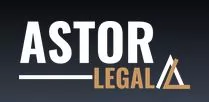Three men have been charged with dishonestly obtaining financial advantage by deception after allegedly claiming more than $1.3 million in NSW disaster and COVID-19 relief payments.
Prosecutors laid a combined 57 fraud offences after a five-month investigation.
A number of homes throughout western Sydney were searched by police with a number of items seized.
The matter was listed for first mention at Bankstown Local Court.
Fraud Charges in NSW
The investigation that led to the fraud charges commenced five months ago. Officers were alerted to potentially fraudulent applications made against the NSW government financial schemes.
Prosecutors will allege that a criminal syndicate applied for a number of fraudulent claims for support payments.
NSW Police executed three search warrants at homes at Auburn, Chester Hill and Carramar in Sydney's west.
During the searches they seized cash, electronic devices and documents.
Three men - aged 48, 34 and 30 - were arrested during the operation and will face fraud charges in NSW.
The 48-year-old man was charged with 22 offences, including knowingly directing the activities of criminal group, dealing with identity information to commit an indictable offence and dishonestly obtaining financial advantage by deception.
Police will allege he coordinated the criminal group and instructed others to submit fraudulent claims using various identities and received most of the fraudulently obtained payments.
The 34-year-old man was charged with 17 offences and the 30-year-old man was charged with 18 offences.
Their charges included participate in a criminal group, deal with identity information to commit an indictable offence and dishonestly obtaining financial advantage by deception.
Investigators claim that the group obtained personal identity information and bank details with the purpose of submitting fraudulent claims against the COVID-19 Micro-Business Grant and The Small Business Fees and Charges Rebate.
All three men were refused bail. Criminal lawyers in Bankstown will have an opportunity to apply for bail at Bankstown Local Court.
Financial Crimes Squad Commander, Detective Superintendent Linda Howlett said, "investigators are still examining significant amounts of information and applications and we suspect additional charges will be laid as further frauds are discovered and linked to this group."
Service NSW Executive Director of Risk, Strategy and Performance Catherine Ellis said the agency was continually strengthening its fraud prevention and detection systems.
"It is incredibly disappointing that deliberate, coordinated fraudsters have undermined the systems put in place to support the businesses of NSW in one of the most challenging times we have faced," she said.
What is Dishonestly Obtaining Financial Advantage by Deception?
The offence of dishonestly obtaining financial advantage by deception is also known as fraud and is contained in section 192E of the Crimes Act 1900 (NSW).
The prosecution must prove, beyond reasonable doubt, that a person used dishonestly used deception to obtain property belonging to another, or obtain any financial advantage or causes any financial disadvantage, is guilty of the offence of fraud.
You can beat a fraud charge if the prosecution cannot prove that you:
- Obtained a financial advantage or caused a financial disadvantage; and
- That the financial advantage or disadvantage was obtained as a result of a deception or act of dishonesty.
What is a Financial Advantage?
A financial advantage is obtaining a financial gain.
This can be for yourself or another person. It also includes inducing another person to perform an act or omission that results in a financial gain. The financial advantage does not have to be permanent, and can be temporarily obtained.
The prosecution must prove that there was an element of deception or dishonesty in the act.
What is a Financial Disadvantage?
A financial disadvantage is causing a financial loss to another person, or inducing another person to do something that causes a financial disadvantage.
What is Dishonesty?
Dishonesty is assessed according to the standards of ordinary people and known by the defendant to be dishonest according to the standards of ordinary people pursuant to Section 4B of the Crimes Act 1900.
What is Deception?
Deception is any intentional or reckless deception, by words or other conduct, as to fact or as to law.
Section 192B of the Act defines 'deception' as including:
(a) a deception as to the intentions of the person using the deception or any other person, or
(b) conduct by a person that causes a computer, a machine or any electronic device to make a response that the person is not authorised to cause it to make.
Defences to Dishonestly Obtaining Financial Advantage by Deception
The defences to dishonestly obtaining financial advantage by deception are:
- Causation: Your dishonest actions must be the main cause of the gain or loss. If this cannot be proved beyond reasonable doubt, you will be found 'not guilty'
- Claim of right: You were entitled to the property or financial advantage
- Duress: You were forced to commit the fraud;
- Necessity: Your actins were necessary in the circumstances.
- Mental illness defence: Some conditions (such as Bipolar) may give you delusions of grandiosity and cause you to commit fraud. At the time of the offending, if you do not appreciate the moral wrongfulness of your actions, you may be able to defend the charge.
Penalty for Dishonestly Obtaining Financial Advantage by Deception
The maximum penalty for dishonestly obtaining financial advantage by deception is 10 years' imprisonment.

